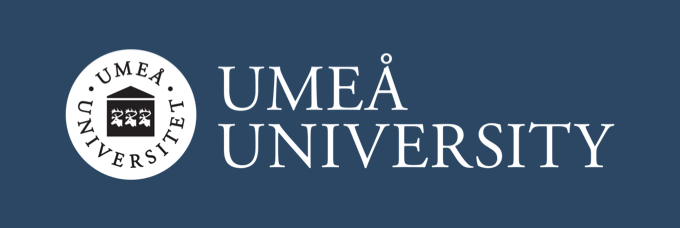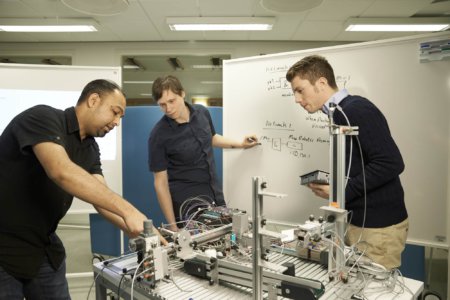As we move into the next industrial revolution, cars drive themselves, machines read X-rays, drones deliver packages, and chatbots process our refunds. With this progress comes a celebration of human ingenuity — and fear. “Job-stealing robots” reflect public concerns over how they will render some work activities humans currently perform redundant. Then, there are the more nefarious speculations. One of them — “AI takeover” — refers to computers becoming the dominant form of intelligence on Earth.
Both are valid concerns. From Stephen Hawking to Elon Musk, there are efforts to make AI better, safer and the labour market more adaptive to the breakneck rate of developments in technology. Other heavyweights to call for more robust and beneficial AI include research directors at Google and Microsoft. In academia, Umeå University is leading the research and education race to emphasise the ethical and value-based components of AI.

Source: Shutterstock
It has the talent, facilities and network to do so. Umeå University is one of the five Swedish universities in the largest research programme ever funded by a private foundation, Wallenberg AI, Autonomous Systems and Software Programme (WASP). With the UmeAI Network, it is building a vast network of researchers, teachers, students and professionals to learn, discuss and collaborate around AI-related issues. The network includes seminars, panel discussions, courses and other activities. The university also has strategic work with the major investments made within the AI research area in Sweden, involving investments in machine learning and methods for explaining the results that these methods generate, so-called explainable AI. Over 30 researchers are engaged in AI development in different areas at the university.
“We need to be driven in the research that develops, educates and enhances the capabilities of AI in society, both in terms of system development, to implement AI wisely and on regulatory frameworks that manage how AI should be used,” says Helena Lindgren, senior lecturer specialising in AI research.
Lindgren is one of several high-profile faculty members teaching at the Department of Computing Science. Others include Virginia Dignum and Juan Carlos Nieves Sanchez. Dignum is the Wallenberg Chair on Responsible Artificial Intelligence and Program Director of WASP-HS. She is also a member of the European Commission High Level Expert Group on Artificial Intelligence, the World Economic Forum Council on AI, and several other internationally recognised research bodies. Last year, she was one of five nominees for the prestigious AI Swede of the year award. Her paper with Professor Frank Dignum, received the best paper award for AAMAS 2020 Blue Sky track.

Source: Shutterstock
“My research focuses on the complex interconnections and interdependencies between people, organisations and technology. My work ranges from the engineering of practical applications and simulations to the development of formal theories that integrate agency and organisation, and includes a strong methodological design component,” says Dignum.
Ass.Professor Juan Carlos Nieves Sanchez is part of the newly funded project Trust AI, an Erasmus+ programme to assist universities in how to teach AI and reach students from all disciplines on how it is deployed. “Higher education must play a role in contributing to cutting-edge, safe, ethical AI. It is up to us to not just prepare young people with advanced programming skills, but also to prepare all students to understand the implications of AI and ensure it is put to good use,” says associate professor Nieves.
The Master’s Programme in Artificial Intelligence is designed with this aim. Students stand to gain broad and deepened knowledge in one of five profile areas of special interest: theoretical foundations of AI, human-AI interaction, intelligent robotics, machine learning, and data science. Modules include algorithmic problem solving and well-developed programming skills. With the theoretical foundations of artificial intelligence, students are introduced to the background and history of AI in outline. This profile highlights fundamental problems and challenges — scalability, real-time requirements, symbol grounding, and more.

Source: Umeå University, Faculty of Science and Technology
As a past doctoral student at the Department of Computing Science and now a software engineer at software company Elastisys, Jakub Krzywda can see how this master’s degree stands out. “The newly established research groups focus on creating a multidisciplinary approach and cover different aspects of AI. The Master’s programme in Artificial Intelligence at Umeå university will not only develop your technical competence. It covers different aspects of AI and will broaden your knowledge in human-AI interaction and ethics,” Krzywda says.

Source: Umeå University, Faculty of Science and Technology
PhD student Francisco López Sánchez arrived in Umeå after completing his master thesis in the field of high-performance computing applied to seismographic signals analytics in RWTH Aachen, Germany. “The Department of Computing Science is very well-known and has a really good reputation. I’m impressed by the different fields in AI and that the department takes part in the WASP. It’s really good to hear that many of my colleagues are involved in these projects,” he says.
Follow Umeå University, Faculty of Science and Technology on Facebook, Instagram, Twitter and YouTube













